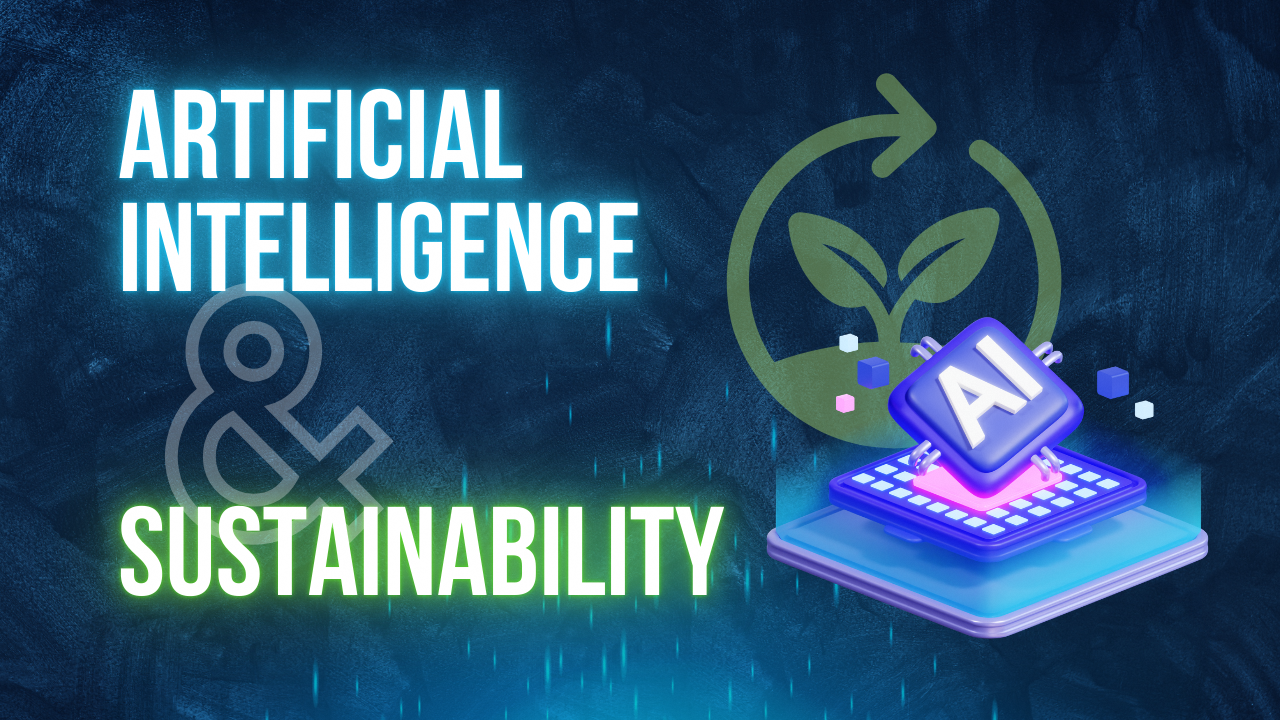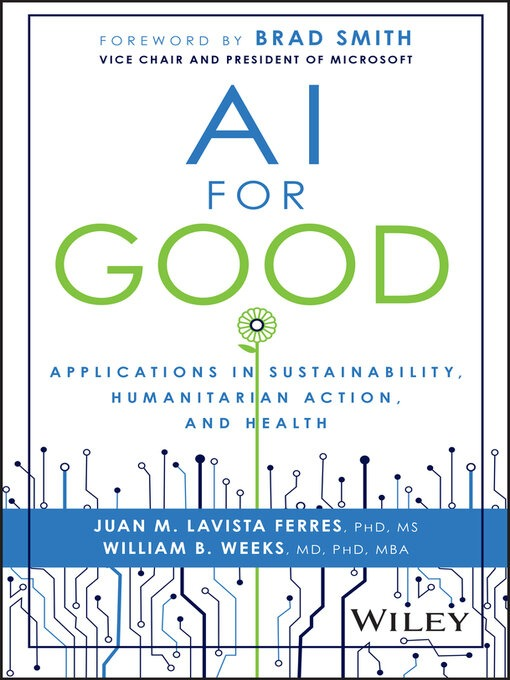AI & Sustainability
Adults & Seniors
by LearnX Digital

Introduction
Artificial Intelligence (AI) is being developed and adopted by businesses, organisations, and individuals worldwide at an unprecedented pace over the last few years. With this development, the issue of sustainability and AI’s potential impact on the environment have also come into the spotlight.
What do we know about AI's impact on sustainability so far?
Discussion Points

In other words, AI requires massive computational power and uses a vast amount of electricity to power its data centres. This has potentially significant negative impact on climate change. What exactly are the known environmental impacts of AI?
According to the International Energy Agency (IEA), “data centres account for 1% of global electricity use”, and is “responsible for 1% of energy-related greenhouse gases (GHG) emissions”. The IEA also forecast that the electricity demand by data centres will more than double from 2022-2026, with AI being a major contributor. To illustrate, ChatGPT alone is estimated to consume half a million kilowatt-hours daily, 17,000 times more electricity than the average US household daily.
Vast amounts of fresh water are also needed to cool the systems that power AI. According to researchers from University of California, Riverside, it is projected that “the global AI demand may be accountable for 4.2 – 6.6 billion cubic meters of water withdrawal in 2027, which is more than the total annual water withdrawal of half of the United Kingdom”.
So far, we’ve explored how AI affects the environment negatively, but it is not all doom and gloom. AI also has the potential to be a powerful tool to combat climate change itself.
A study found that AI can act as an enabler but could also inhibit United Nation's Sustainability Developmental Goals (SDG), in particular SDG 7 (clean and affordable energy) and 13 (climate action).
Here are some ways AI is being used in various sectors for environmental sustainability:

The era of AI is unfolding before us in dynamic and dizzying ways. Although AI and sustainability is a contentious topic, it is worth exploring and keeping our eyes peeled on its development as the world grapples with AI and technological development at large.
Video Recommendations
This video discusses AI’s positive climate impact, its resource drains and AI regulations in place:
This video focuses on AI’s carbon footprint:
Book Recommendations

How Digital Environmentalism Can Combat Climate Change, Restore Biodiversity, Cultivate Empathy, and Regenerate the Earth
Author: Karen Bakker
Release Date: April 16, 2024

Applications in Sustainability, Humanitarian Action, and Health
Authors: Juan M. Lavista Ferres, William B. Weeks
Release Date: January 23, 2024
Connect and Learn with NLB
Stay updated on the everchanging digital landscape with NLB's series of programmes – My Digital Life.
References
1. CB Insights. (2024). Artificial intelligence: Top startups 2024. https://www.cbinsights.com/research/report/artificial-intelligence-top-startups-2024/
2. Kwan, A. (2024, February 19). Singapore’s AI ambitions get a boost with $740 million investment plan. CNBC. https://www.cnbc.com/2024/02/19/singapores-ai-ambitions-get-a-boost-with-740-million-investment-plan.html
3. National University of Singapore. (2024). Tropical climate data centre testbed launched at NUS. https://cde.nus.edu.sg/news-detail/tropical-climate-data-centre-testbed-launched-at-nus/
4. Infocomm Media Development Authority. (2024). Charting green growth for data centres in SG. https://www.imda.gov.sg/resources/press-releases-factsheets-and-speeches/factsheets/2024/charting-green-growth-for-data-centres-in-sg
5. NPR. (2024, September 11). Elon Musk’s AI X.AI supercomputer aims to tackle pollution in Memphis. https://www.npr.org/2024/09/11/nx-s1-5088134/elon-musk-ai-xai-supercomputer-memphis-pollution
6. International Energy Agency. (2023, July 11). Data centres and data transmission networks. https://www.iea.org/energy-system/buildings/data-centres-and-data-transmission-networks
7. Hsu, T. (2023, July 11). AI data centers’ energy usage and climate change. Time. https://time.com/6987773/ai-data-centers-energy-usage-climate-change/
8. O'Connell, B. (2023, July 10). The obscene energy demands of AI. The New Yorker. https://www.newyorker.com/news/daily-comment/the-obscene-energy-demands-of-ai
9. Li, Y., & Wang, Y. (2023). A comprehensive review of AI in energy management. arXiv. https://arxiv.org/abs/2304.03271
10. Zhang, Y., et al. (2019). The role of AI in sustainable energy systems. Nature Communications, 10(1), 1-12. https://www.nature.com/articles/s41467-019-14108-y
11. United Nations Development Programme. (n.d.). Sustainable development goals. https://www.undp.org/sustainable-development-goals
12. International Energy Agency. (2023). Why AI and energy are the new power couple. https://www.iea.org/commentaries/why-ai-and-energy-are-the-new-power-couple
13. Justyna, M. (2024, June 20). The role of AI in energy management and optimisation. https://knowhow.distrelec.com/energy-and-power/the-role-of-ai-in-energy-management-and-optimisation/
14. Kjaerbye, J., et al. (2019). The impact of AI on energy efficiency. Applied Energy, 235, 120-130. https://www.sciencedirect.com/science/article/abs/pii/S0957582019318403?via%3Dihub
15. TEDx Talks. (2023, March 15). The future of AI and energy: A conversation. [Video]. YouTube. https://www.youtube.com/watch?v=rZakJcZ3Qfc
16. Ersin, E., et al. (2023). Artificial Intelligence Technology in the Agricultural Sector: A Systematic Literature Review. https://ieeexplore.ieee.org/document/9999442
17. Xu, J., et al. (2023). AI and climate change: A new perspective. Nature Climate Change, 13(5), 456-467. https://www.nature.com/articles/s41558-023-01769-3
18. Scientific American. (2023, August 1). How AI can help save endangered species. https://www.scientificamerican.com/article/how-ai-can-help-save-endangered-species/